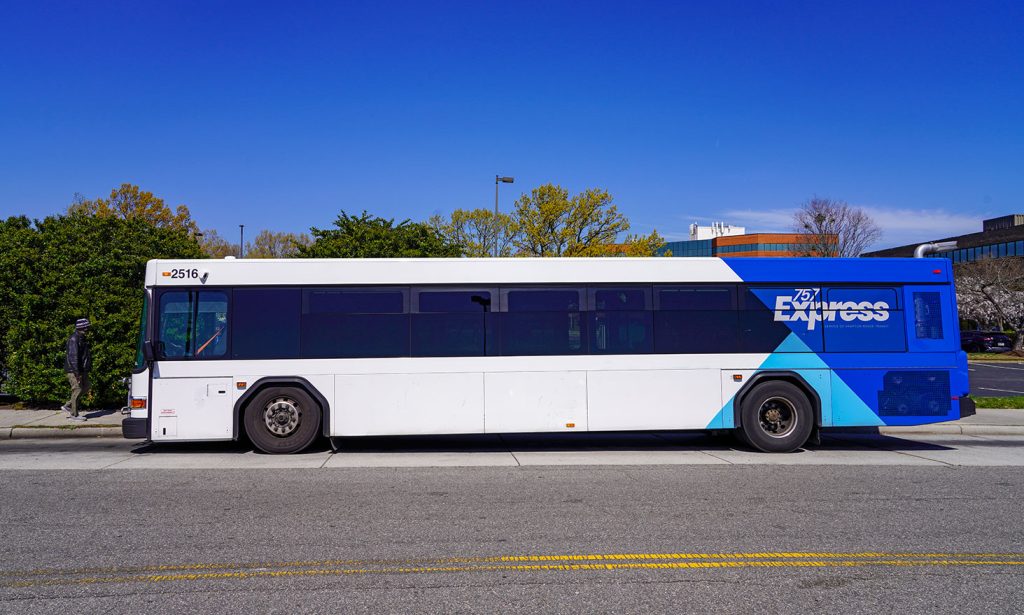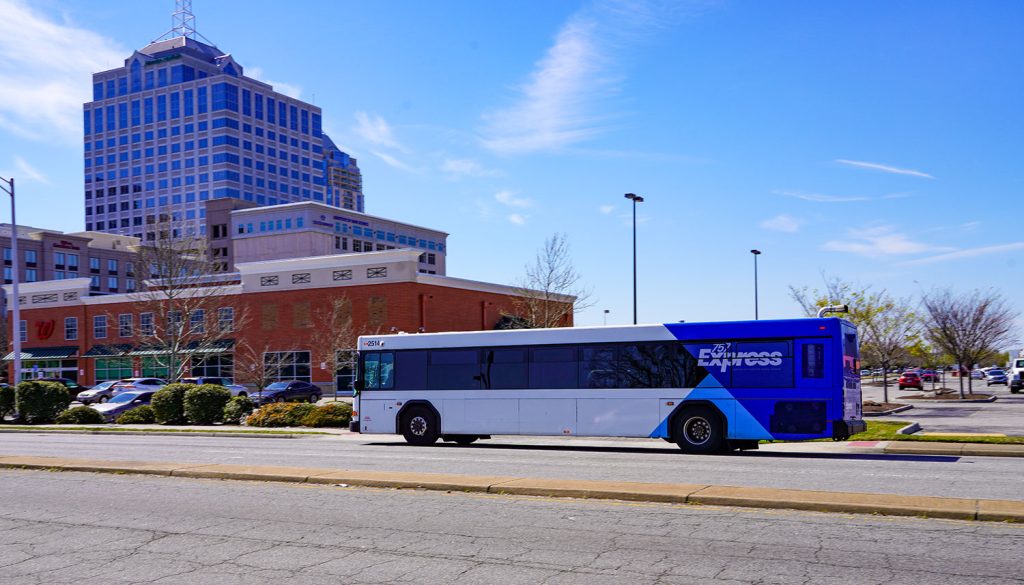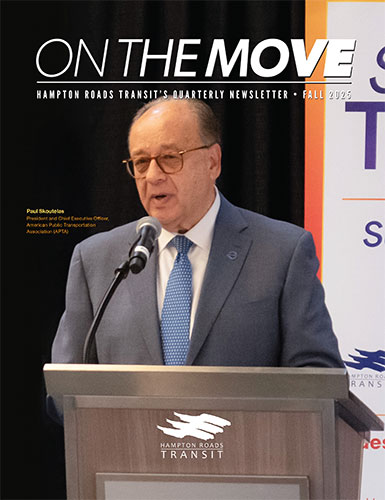Driving Operator Retention: Hampton Roads Transit’s Mentorship Program
One of Hampton Roads Transit’s most valuable assets is its bus operators. Nationwide, transit agencies have been battling a shortage of qualified drivers sparked by the Covid-19 pandemic. It’s a shortage they’ve tried to overcome with various incentives, including free commercial driver’s license (CDL) prep classes, paid training, and hiring and retention bonuses, which were phased out this summer.
It’s not enough to bring qualified drivers in the door. You’ve got to keep them. And while almost anyone can be taught the fundamentals of operating a bus, not everyone is cut out to be a bus operator.
That’s why HRT, in partnership with the union representing operators, created a bus operator mentorship program. This peer-to-peer mentorship program enables veteran operators the opportunity to grow their leadership skills while supporting the career development of new operators during their first year on the job.
The idea for the mentorship program started with union leadership. HRT bus operators are represented by Amalgamated Transit Union (ATU) Local 1777. Union president John Reid approached Human Resources with the idea in November 2022. The union and HRT worked together to develop the program before rolling it out in September 2023.

Program builds connections and confidence
HRT’s bus operator training is 12 weeks long. It includes two weeks in the classroom, five weeks on the road, and another four weeks behind the wheel with a veteran operator observing before they graduate and drive routes alone.
Bus operator trainees are told about the mentorship program during their first and final weeks of training. The program is open to all trainees, but they must register before graduation. In the last year, 18 operators completed the program. More than 20 bus operators signed up to be mentors. Both mentor and mentee commit to a one-year partnership.
According to HRT talent acquisition manager Monique Strickland, the program aims to retain newly trained operators beyond their first year. Mentors are available to answer questions on policy and procedure, scheduling, schedule changes, or anything else that comes up.
Mentorship creates opportunities for growth
To volunteer as a mentor, bus operators must be in good standing and have at least one year on the job. According to Human Resources, that means they haven’t had any disciplinary issues or customer complaints within the last year. Mentors must also have great communication skills.
Bus operator Tina Walker jumped at the chance to be a mentor. “I love helping people,” she said, “that’s just part of who I am.” Walker has been with HRT for 11 years and still remembers her first year on the job.
“There were a lot of things I didn’t understand, so I sought out people to mentor me,” she says. Now, as a mentor, she is giving back by helping new bus operators get through their first year.
“I love the interaction, talking to them, finding out who they are, why they came to HRT,” Walker says. “I love being able to tell them little tricks, like how to get a one-dollar bill in the farebox.”
Bus operators get plenty of on-the-job training, “but when passengers start getting on the bus, it’s completely different,” Walker says. “It’s nice to have someone sitting beside you who knows the answers.”
Bus operator and mentor Terry Simpson agrees. Simpson says passengers are keen to spot a new operator. “Sometimes people can be unkind,” he says. “And that can cause a new operator to quit.” He believes the first year will “either make or break you.” But he adds, “If you can make it through your first year, you’ll be good to go.”

Road to retention
Bus operator Kenneth Ufeitugo credits Simpson for getting him through his first year at HRT. When Simpson talked, Ufeitugo listened because he knew whatever he had to say to him was important. “I was lucky to have him as my mentor,” Ufeitugo says. “He’s the reason I’m still here.” On the hard days, he says Simpson provided much-needed perspective, reminding the single father of three what’s really important.
Kerisha Reynolds-Burke says the right words from her mentor at the right time were enough to keep her going. She’s been with HRT for less than a year and started working with Carmen Christian-Barnette in April. “My first week on the job was so hard,” Reynolds-Burke recalls. “I didn’t know the area and I was embarrassed.” She readily admits that she would’ve quit if it weren’t for her mentor.
Christian-Barnette, a bus operator for 30 years, encouraged her to “give it a month.” She’s glad she did because it did get better, and she’s happy she stayed. She and her mentor stay in regular contact, and Reynolds-Burke says she’s thankful for the program.
Peter Katranides, HRT’s employee engagement retention specialist, oversees the mentorship program. He regularly touches base with mentors and mentees to solicit feedback and improve the program. While the program is still in its infancy, it’s already showing signs of success. Eighty-two percent of bus operators who completed the program in the first year are still with the company. HRT’s overall retention rate for first-year bus operators during the same period is slightly lower, at 78 percent.
Operators like Walker and Simpson remember what it was like to struggle during their first year. Through the mentorship program, they’re in a position to help alleviate some of the chaos and confusion experienced by new operators.
“You have someone to reach out to, to ask questions,” Simpson says. “There’s just so much you don’t know when you’re starting off.” After 30 years, Simpson is closing in on retirement. His mentee is also looking forward to the day he can retire from HRT.
“I’m not going anywhere,” Ufeitugo says. “I love working here.”





